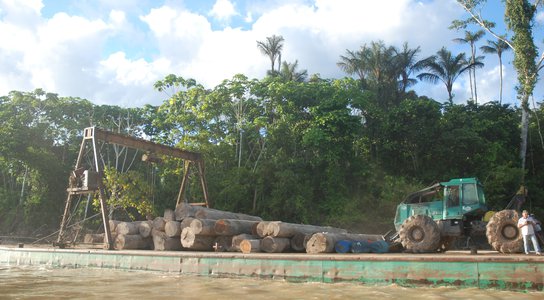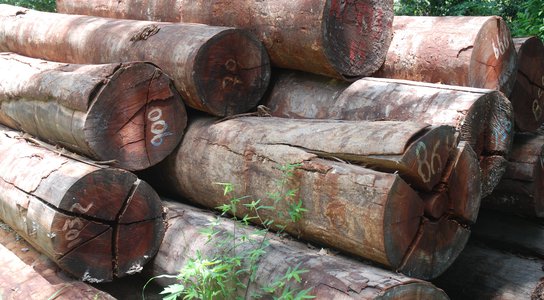Our new analysis reveals that illegal logging in Peru’s forests is still widespread and systematic, contributing towards the degradation of the Amazon.
Update: 10th April 2019 - In a dramatic U-turn, the Peruvian government published a decree that restores the independence of OSINFOR. This comes just a few months after its independence had been seriously undermined by placing it under ministerial control. But there is much more that needs to be done - including extending and strengthening OSINFOR's powers. Read more on exactly what below.
Despite the rampant levels of illegal logging, the Peruvian government made alarming moves to weaken its forest watchdog - the Organismo de Supervisión de los Recursos Forestales y de Fauna Silvestre (OSINFOR) - even though it has been the only state agency effectively tackling the problem.
Global Witness is issuing an urgent call on the Peruvian government and international donors to step up their efforts to conserve the globally important forest from rampant crime, by protecting and expanding the powers of this vital agency.
Download the full report The Forest Avengers here (PDF)
Peru’s tropical forest is the fourth-biggest in the world, extending for 68 million hectares. It is one of the most biodiverse regions on the planet and could play a crucial role in combating climate change.
But destructive and often illegal logging practices taking place in the country are causing enormous damage to this forest.
Our report also reveals how some of Peru’s biggest sawmills are consistently processing high rates of illegal timber to go out to consumer markets; and that logging companies are finding increasingly creative and devious ways to destroy the Amazon for profit, including:
- Using new types of harvest areas – especially those intended to be in the hands of local communities – to launder timber on a vast scale. These kinds of harvest areas are unable to be fined by OSINFOR.
- Faking the locations of trees in official documents, while illegally cutting trees elsewhere.
- Colluding with regional governments to get those falsified documents approved, making illegal timber appear legal.
- Using areas OSINFOR is unable to inspect – including plantations and land cleared for agriculture – to falsely declare their timber originated there, when really it was extracted elsewhere.
Peru’s forest watchdog OSINFOR has helped curb these abuses over the past decade.
Tasked with protecting the country’s forests, OSINFOR has fought back against the onslaught of illegal logging and become a global pioneer in tackling serious forest crime. Since it became an independent agency, which is not linked to any one ministry, its oversight operations dramatically improved.
But now OSINFOR itself is in danger – with its independence weakened and subordinated to the Ministry of Environment, and the all the good work it does severely under threat.
Given the scale of the plunder and illegal logging revealed in our report, Peru’s government should restore OSINFORs independence and extend the powers of this vital agency.
And donors, importers and trade partners including Norway, Germany, the US, China, Mexico and the EU also have a crucial role in supporting Peru and OSINFOR, protecting the Peruvian Amazon and ensuring they do not import illegal Peruvian timber.

